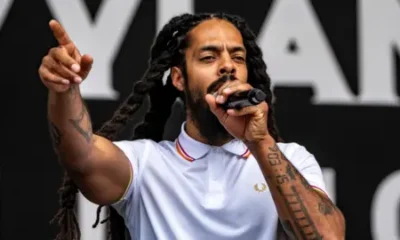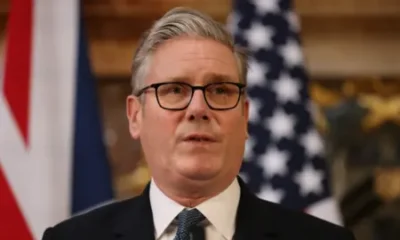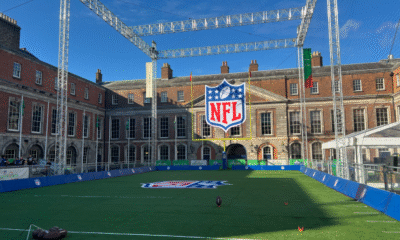
Breaking News
Kelly: First contact with gardaí ‘not where it should be’
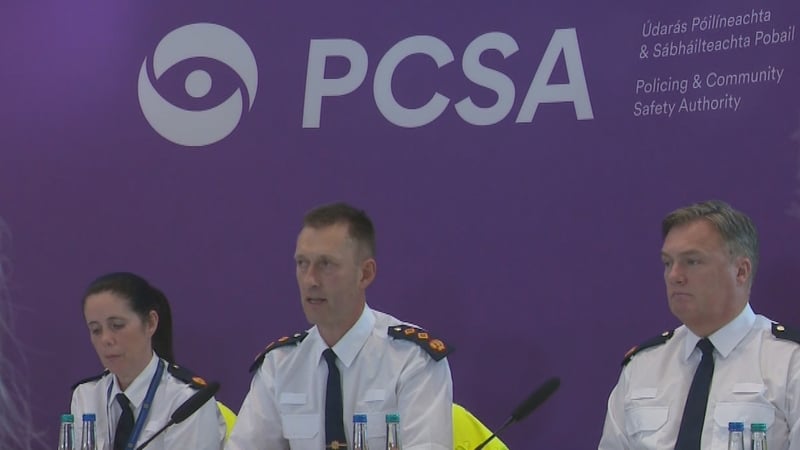
This post was originally published on this site.
Garda Commissioner Justin Kelly has said he is not satisfied with the way some gardaí deal with the public and victims of crime on first contact.
Mr Kelly said: “It’s not where it should be and neither is the follow up.”
He told the Police and Community Safety Authority that these members are “really hurting us” because their behaviour affects public trust and confidence, alongside preventing people coming forward.
He referred to two surveys which showed that almost half of victims of domestic violence were not happy with the service the gardaí provided them
He said he was concerned about these high numbers and was due to meet with the CEO of Women’s Aid.
Mr Kelly said “a piece of work” was under way to resolve the issue.
The commissioner also said the high visibility policing plan is to be expanded to include two more areas of Dublin before Christmas before being established in other parts of the country.
Acting Deputy Commissioner Paul Cleary, who devised the plan, said gardaí can measure its effectiveness.
He said it was devised by targeting high crime areas identified through garda, community and business feedback.
Gardaí, he added, are placed in those so-called “red hot spots”.
He said management gets a report every Monday which shows what garda was assigned where and what they did on duty.
“We can see they’re not just standing around doing nothing,” he said.
The commissioner said one of the key lessons in relation to what gardaí say was a successful operation is that “we should have done this a long time ago”.
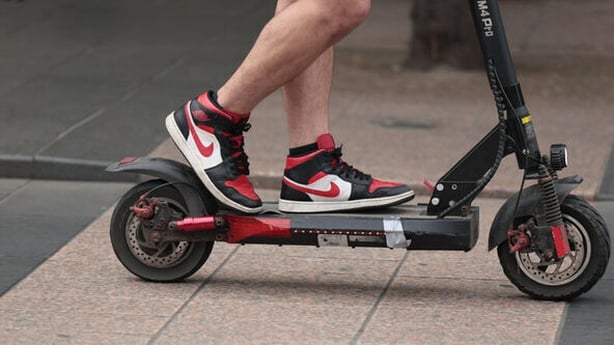
Mr Kelly said he had made it a priority for gardaí to tackle the lawlessness surrounding groups on motorbikes and e-scooters.
He said he was concerned about aspects of the legislation and that some of the things the gardaí recommended were not adapted.
“I intend to revisit these and current legislation,” he said, adding that he would “think the public would share my concerns around the rules, around this legislation”.
He also said that while gardaí had seized large numbers of motorbikes, e-bikes and e-scooters, the dangers of enforcement were very real because there had been a number of people killed.
Mr Kelly said it was very difficult for gardaí to intervene to try to stop these people.
The commissioner told the authority that there had been some “absolutely horrific” attacks on gardaí, including “assailants with swords and weapons” and “incidents where officers have had to retreat”.
Commissioner Kelly said he was committed to providing gardaí with the equipment they needed to do their job and was planning a pilot programme on the introduction of tasers for frontline officers.
Mr Kelly said that it is a priority for him to increase resources and equipment around national security.
This, he said, would involve additional analysts, specialists and more officers assigned to the Special Detective Unit.
He said it is a geopolitically volatile time with wars in the Middle East and eastern Europe.
Ireland, he added, was not immune to threats from hostile states, and international and Islamic terrorism.
Kelly reviewing policing model over ‘inefficiencies’
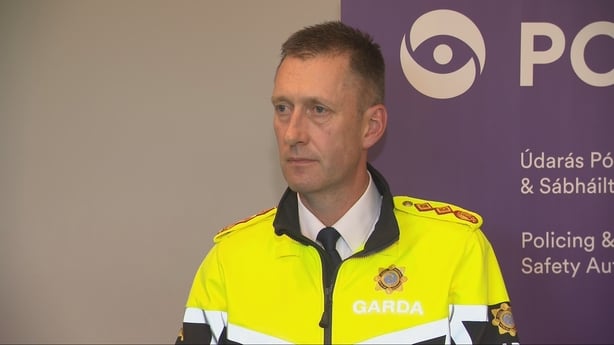
Commissioner Kelly said he is reviewing the garda operational policing model – the structure through which the gardaí police the country – because there are “inefficiencies” and it is “not working well” in parts.
He told the authority there were often disagreements in functional areas over who deals with what crime and there were problems in Roads Traffic Policing.
His comments are in marked contrast to those of his predecessor Drew Harris, who consistently insisted the model was working well in spite of claims to the contrary from gardaí at all ranks.
Commissioner Kelly said there needed to be consistency in the operation of the model.
He described the findings of the Crowe report, which found that some gardaí in roads policing were not doing their job and had no interest in doing it, as “shocking and disappointing”.
He accepted the current system of governance and oversight in roads policing was not working, saying it is “not doing the job we want it to do”.
He added an implementation group was looking at numbers, deployments and individual accountability in the department.
It was also looking at performance management in relation to the senior officers who are supposed to supervise gardaí not doing their job, as well as fleet distribution, policies and procedures.
The newly appointed Assistant Commissioner in charge of roads policing also told the authority that they were preparing a “structured time bound plan” to change the culture and work ethic in roads policing which would deliver “high standards, productivity and accountability”.
Breaking News
UK govt to introduce ‘Brit-Card’ digital identity scheme
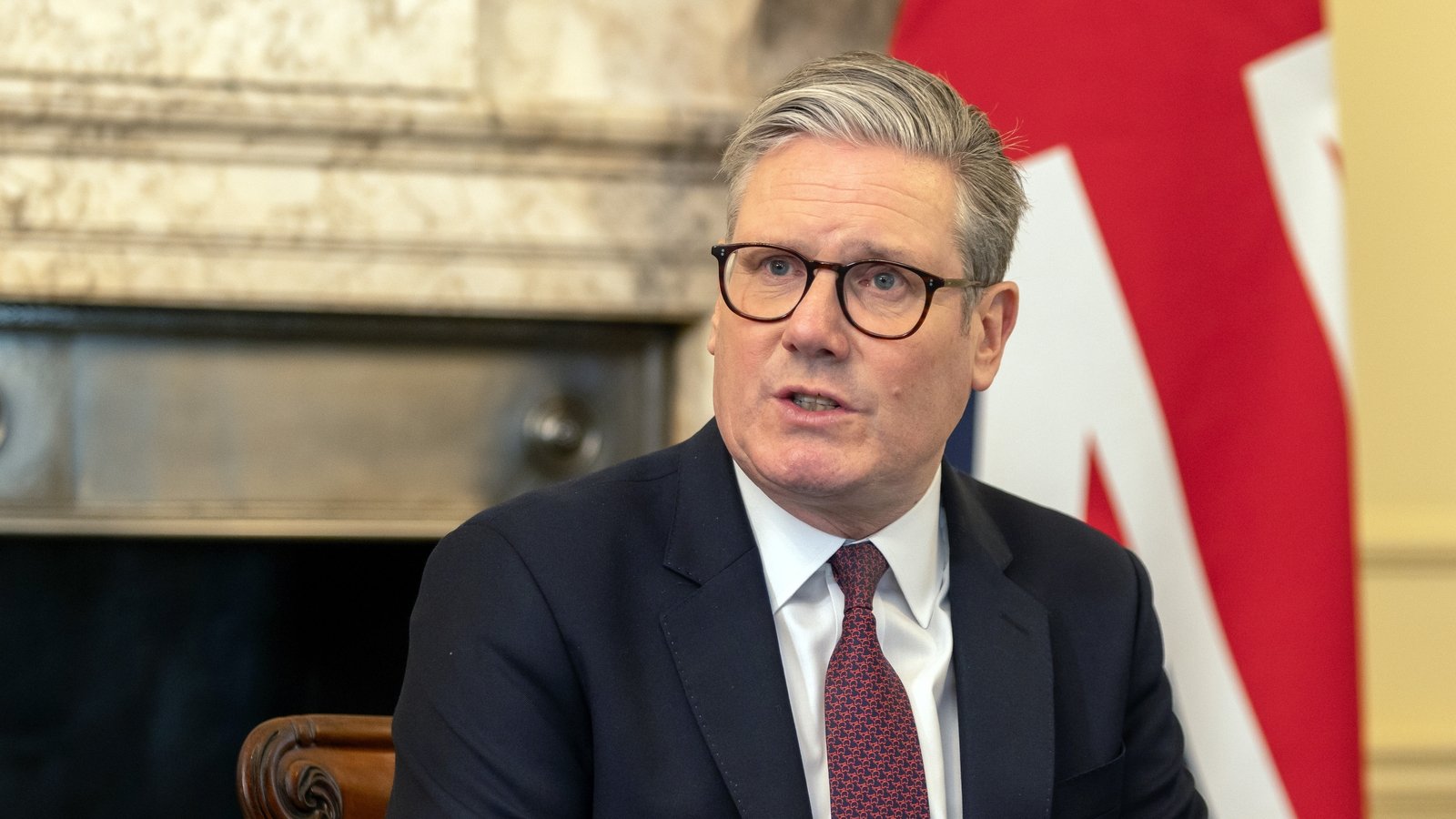
Read more on post.
The UK government is set to introduce digital ID cards to tackle illegal migration.
The announcement will be made by Prime Minister Keir Starmer during a speech on Friday, it is understood.
The so-called ‘Brit-Card’ will be subject to consultation and thought to require legislation, as first reported by the Times newspaper.
The scheme will allow the verification of a citizen’s right to live and work in the UK.
Under the plans, anyone starting a new job or looking to rent a home would be required to show the card on a smartphone app.
It would then be checked against a central database of people entitled to live and work in the UK.
It is hoped this would reduce the attraction of working in the UK illegally, including for delivery companies.
This comes amid calls from French President Emmanuel Macron for the UK to reduce “pull factors” for migrants to cross to come to the UK.
A total of 1,157 people have arrived on small boats in the last week, according to Home Office statistics.
Prime Minister Starmer is due to speak at the Global Progress Action Summit in London alongside Australian prime minister Anthony Albanese and Canadian prime minister Mark Carney.
Earlier this month, Mr Starmer said an ID card system could play an “important part” in stopping illegal migration.
He said things had “moved on” since the debate over ID cards during the last Labour government in the 2000s.
He had told the BBC: “We all carry a lot more digital ID now than we did 20 years ago, and I think that, psychologically, it plays a different part.”
Home Secretary Shabana Mahmood has also previously been positive about the policy.
The UK has only previously had mandatory ID cards during wartime. The last ID scheme was scrapped in 1952.
John Major’s government ran a consultation on reintroducing an ID card scheme in the 1995, but they were never brought in.
His successor, Tony Blair, then considered a voluntary ID card, but it was not fully rolled out amid objections from the Liberal Democrats and Conservatives.
Mr Blair has since called for their introduction.
His calls were backed up by Labour campaign group Labour Together earlier this year which has been closely linked to Mr Starmer and the Government.
The thinktank published a 30-page document in June in favour of the ‘Brit Card’.
In the report, it said: “The Labour government has the opportunity to build a new piece of civic infrastructure, something that would become a familiar feature of daily life for everyone in the country.
“It would support better enforcement of migration rules, and protect vulnerable British citizens from being wrongly denied their rights.”
The civil liberty group Big Brother Watch has again warned against their introduction.
A petition started by the group has reached more than 101,000 signatures.
In a letter to Mr Starmer on Wednesday, the group said: “Mandatory digital ID is highly unlikely to achieve the government’s objective of tackling unauthorised immigration.
“The proposed schemes fundamentally misunderstand the ‘pull factors’ that drive migration to the UK and would do very little to tackle criminal people-smuggling gangs or employers and landlords who operate ‘off the books’.
“Instead, it would push unauthorised migrants further into the shadows, into more precarious work and unsafe housing.”
Ed Davey told the Liberal Democrat conference this week that his party would need to properly “scrutinise” any details, but said it was not necessarily against the policy.
Responding to the ad-hoc poll during an event in Bournemouth, Mr Davey replied: “Times have changed, and that is why I am saying ‘let’s look at it’.”
He added: “There are models that may answer our objections as liberals.”
Breaking News
‘It’s like Pittsburgh invaded Dublin’: NFL fans happy to tick off ‘bucket list’ city
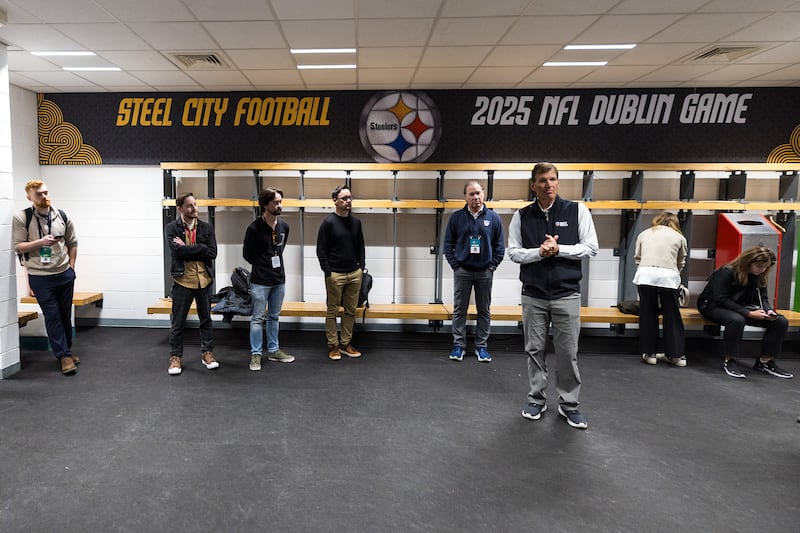
Read more on post .
Within hours of arriving to Ireland for the first time, Pittsburgh native Caley Sanguigni’s most prominent impression is that the Irish “love their swear words like a drunk Pittsburgher”.
“Our Uber driver who took us here was swearing up a storm,” she said.
Standing in Dublin Castle’s upper courtyard, which, for three days, is hosting an National Football League (NFL) festival, she said: “It’s like Pittsburgh invaded Dublin.”
Sanguigni is one of more than 70,000 people due to attend the first ever regular-season NFL game played in Dublin.
Sunday’s Pittsburgh Steelers v Minnesota Vikings clash has drawn a significant number of visitors from the US, which, according to NFL UK and Ireland general manager Henry Hodgson, is not typical for games hosted outside the sport’s homeland.
He cited data based on expressions of interest logged before tickets went on sale earlier this year. A third of those intending to attend were from the US, another third was based in Ireland and the remainder were from the UK and the rest of Europe.
“That is not normally the make-up of those games,” he said.
For other games staged abroad, such as in the UK, he said between 60 and 70 per cent of tickets were typically purchased by locals.
“I think it speaks to Dublin as a bucket list location.”
[ The NFL comes to Dublin: How it became the richest sports league in the worldOpens in new window ]

The NFL stages games abroad with a view to expanding the reach and popularity of “America’s Game”. With the number of Irish NFL fans, and viewership of the sport here, rising in recent years, he expects the occasion to be a “catalyst for further growth”.
Should Sunday’s game have the desired impact, something he said will be measured by the NFL and the Irish Government afterwards, more Irish fixtures could be on the cards.
There have been some high-profile attacks on tourists in Dublin in recent months and years, including a 2023 assault on New York native Stephen Termini, which prompted the US embassy in Dublin to warn visitors to Ireland to keep a “low profile”.
However, Hodgson maintains that Dublin and Ireland are perceived as being “incredibly safe” by US visitors.
The prospect of pro-Palestinian protests on Sunday was not a concern, he said, adding that sport can be a “unifying force” and there will be no attempt to ban any flags at the game, Palestinian or otherwise.

A view of Steelers painted on the Croke Park pitch ahead of Sunday’s game
Mandatory Credit ©INPHO/Laszlo Geczo
An Garda Síóchána expects arrangements put in place for the game at Croke Park to cause significant traffic disruption and delays. The force said a “large number” of uniformed gardaí will be deployed, as well specialist units including the public order unit, armed support unit and air support unit.
On Thursday, Dublin’s streets, pubs and tour buses were already awash with the signature black, gold and purple colours of the Steelers and Vikings.
Many of those who had travelled said Dublin felt “welcoming” and “safe” when compared to other European capitals, with almost all expressing shock at the presence of the sun.
An older couple arriving at Dublin Castle were overheard asking a steward how to pronounce “Galway”. That tourist hotspot, as well as the Cliffs of Moher, Killarney and Spike Island in Co Cork, appeared to be on the must-see lists of many of those who have planned extended stays.
Ashley Graf, a Vikings fan from Minnesota, travelled to Dublin with her mother Sherral, saying the country has been on their “bucket list” for some time.
“Win or lose, it’s still fun to be here. Everyone’s been really nice and helpful,” she said.
Sarah Roy, a native of Ottawa, Canada, who came to travel around the island and see the game, said the Irish have a “wonderful reputation” abroad.
“We’ve never heard anything bad about the Irish people and they’ve surpassed expectations,” she said.
Stacey Wilson and her daughter Brittany, from North Carolina, described Ireland as a “completely different world” to what they are used to back home.
“It is expensive, I’m not gonna lie, but we expected that,” she said.
Breaking News
‘I’m heartbroken kids racially abused me on train’

Read more on post.
Harry LowLondon
This article contains some language and terminology you may find offensive
A woman says she is “shaken” and “heartbroken” after being racially abused by four children while travelling on the Elizabeth line.
Sophia Choudry said she was repeatedly called the P-word on 7 September on a journey from Paddington to Maidenhead.
She called police before the youngsters left the train at Hayes and Harlington station in west London.
British Transport Police (BTP) said it had launched an investigation and Transport for London (TfL) said it was “deeply sorry” and was investigating why Ms Choudry did not receive the help she needed.
A video Ms Choudry, 47, posted of the incident has been viewed two million times on TikTok. The entrepreneur said she hadn’t had the term directed at her for 25 years.
Upon realising she was filming, the children tried to cover their faces – and other passengers criticised her for filming.
One passenger replied “so what?” after she explained she had been racially abused.
Ms Choudry said after calling the police, she activated the passenger alarm to try to stop the youngsters from fleeing.
‘Nothing’s changed’
She said: “I was shocked and angry about the children’s reaction but the adults’ reactions are what broke me and brought me to tears.”
Despite reporting the incident and being told to wait for the police at the station, she was not met by BTP officers and resumed her journey to Slough, where her husband collected her.
A few days later she received a letter from the BTP saying it had closed the investigation partly because of a “lack of identifiable suspects”.
She said the case had been reopened and an officer assigned to it after the BBC began making inquiries.
 BBC/Harry Low
BBC/Harry LowMs Choudry said it brought back memories of growing up in Sunderland where she was “the only brown girl in my school” and “suffered a lot of racism”.
Last year, reported incidents of hate crimes on the Elizabeth line rose by nearly 50%, and by 28% across the wider London transport network, according to the latest TfL figures.
Ms Choudry said 10 years ago she was overjoyed when her children came home and asked “what’s racism?”.
She said: “I couldn’t believe it. I thought things had changed. To hear that word it feels like we’ve regressed and nothing’s changed.
“I couldn’t believe what I was hearing. They were just laughing at me, they didn’t care.”
Ms Choudry added that she wants to “focus on the 95% [of people] who are showing love and support” because “if I don’t focus on them I’ll never leave the house again”.
She told the BBC: “I’ve got a feeling that every person of colour has had this feeling.”
In some areas of the country, St George flags and union jacks have been raised on lampposts and painted on roundabouts, which Ms Choudry said made her uneasy.
“As soon as those flags went up, something changed in the wind, something didn’t feel right.
“I’m a very positive person, I don’t go looking for trouble. There’s a shift now. If I see a group of children now, I’ll cross the road. I just don’t want the trouble.”
As for the children who abused her, she added she had shared the video “because we can’t normalise racism”.
She said: “They’re not just kids – they’re the future.
“I just hope that parents are bringing up their children to treat everyone equally with respect regardless of colour.”
 Sophia K Choudry
Sophia K ChoudryA BTP spokesperson said they “take a zero tolerance approach to hate crime” and anyone who witnessed the incident was asked to contact BTP.
A TfL spokesperson also said they had a zero-tolerance approach to all forms of abuse and they were investigating why Ms Choudry did not receive the help she needed.
-
Culture2 days ago
Taylor Swift’s new cinema outing generates more than €12million in just 24 hours
-
Politics2 days ago
European Parliament snubs Orbán with vote to shield Italian MEP from Hungarian arrest
-
Culture2 weeks ago
Life, loss, fame & family – the IFI Documentary Festival in focus
-
Health3 days ago
EU renews support for WHO’s Universal Health Coverage Partnership
-
Culture2 months ago
Fatal, flashy and indecent – the movies of Adrian Lyne revisited
-
Culture2 days ago
Twilight at 20: the many afterlives of Stephenie Meyer’s vampires
-
Environment6 days ago
Key oceans treaty crosses threshold to come into force
-
Culture1 week ago
Farewell, Sundance – how Robert Redford changed cinema forever




